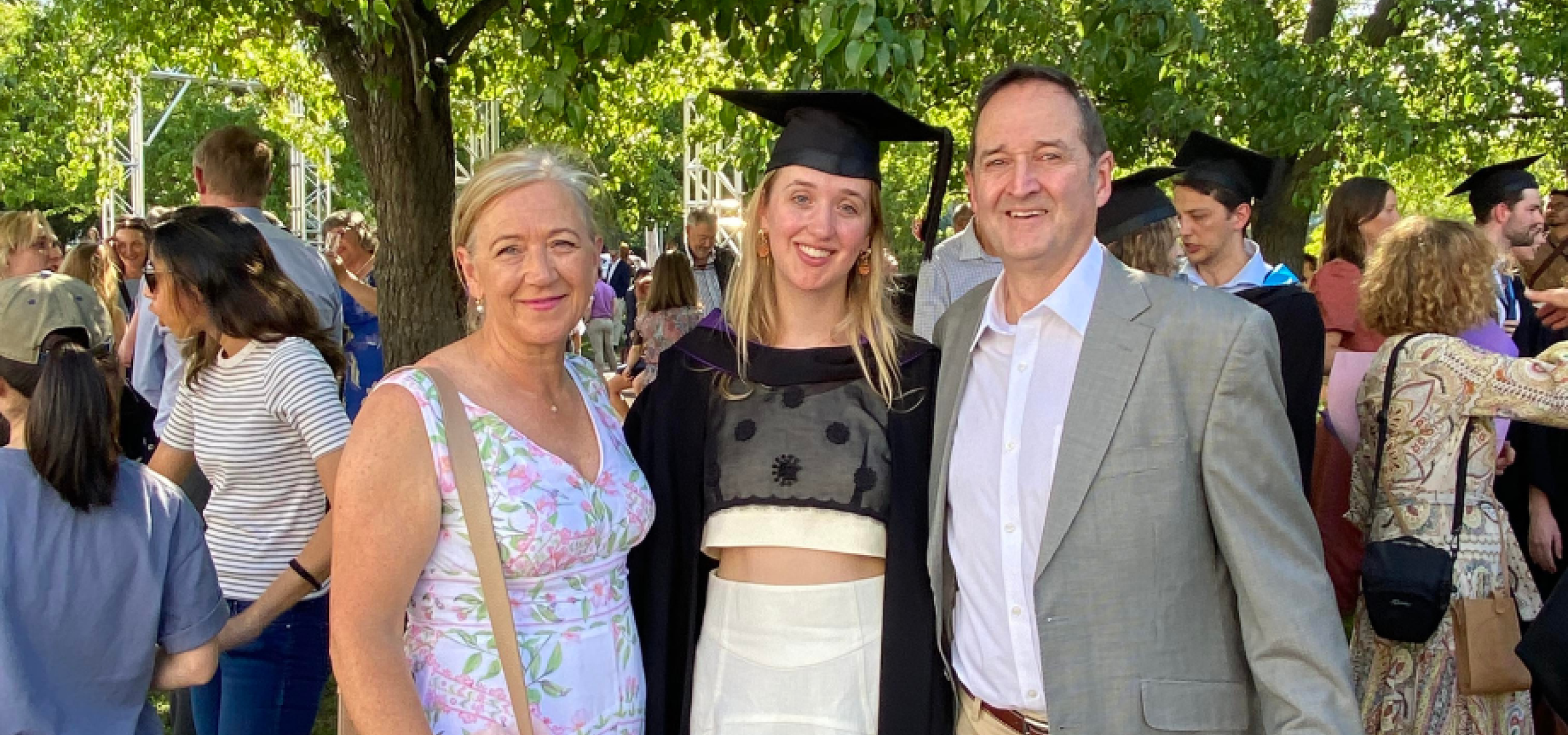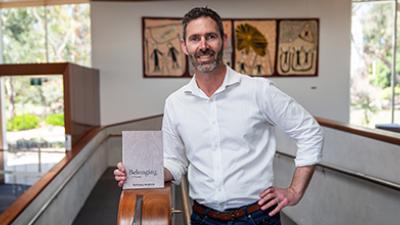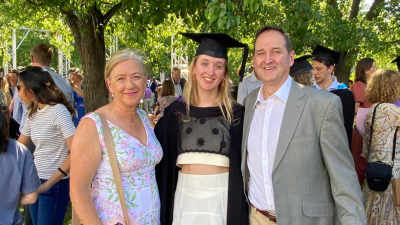
Emma Walling at her graduation ceremony
The Blackburn Medal “is a testament to the many people who guided and supported me,” Emma says, acknowledging the crucial role Sarouche, other ANU academics and the College of Law Library team played in her research and writing.
By Sue Ven Lee
Emma Walling’s thesis is an intersectional-feminist critique of the Victorian law of infanticide, arguing that the law “fails to reflect and respond to the circumstances in which infanticide occurs” and that “[f]ervent defence of a law which has historically associated childbirth and hysteria, is far more reflective of society’s hysterical fear, than it is of the circumstances in which such tragedies occur”.
While Emma initially thought her thesis would defend the law of infanticide, she quickly discovered that much of the good which the law thinks it is doing is imagined. Emma was closely guided by her thesis supervisor, Sarouche Razi, who taught her to explore the “deep questions which people should ask as learners and researchers”.
Her paper ultimately argued that the law of infanticide’s ongoing existence is reflective of an underpinning desire to “tie neat bows on difficult questions”.
The inspiration for Emma’s thesis was borne from a years-long fascination with public responses to women that kill their children. This interest was spawned in her last few years of high school, when she was both studying Euripides’ Medea, and closely following the Guode case in the media. The opportunity to pursue a thesis as part of her studies at the ANU College of Law provided Emma with an avenue to answer “nagging questions” about the social, psychological, and legal aspects of infanticide.
This thesis, which won Emma the Blackburn Medal for Research in Law, is the culmination of a deep-seated interest stretching back to her high school days, as well as her passion for law and the criminal justice system.
The Blackburn Medal “is a testament to the many people who guided and supported me,” Emma says, acknowledging the crucial role Sarouche, other ANU academics and the College of Law Library team played in her research and writing.
Special thanks are also given to her family and friends, who “put up with endless hours” of volleying ideas, and even lent their minds to reading her later drafts.
While winning the Blackburn Medal may just be the cherry on top of her time at the College of Law, Emma also cites her participation in courses which simultaneously encouraged and shaped her interest in criminal law and the community legal sector as some of her most memorable experiences at ANU. The Prison Legal Literacy Clinic and the Sentencing in Australia course, for instance, come highly recommended by Emma.
Aside from this, Emma suggests that students at the College of Law should “embrace all of the wonderful opportunities that the College has to offer, [including] the extra-curricular talks which it facilitates”.
For Emma, these opportunities also included the many treasured, collegial hours spent with friends “in the law library, and lunching on the lawns”.
Another piece of sage advice for those of us still working on our degrees tells us to “be proactive in contacting tutors and lecturers for help or advice with coursework, as well as academic and professional advice”.
While Emma’s time at the College of Law has come to an end, she is now working as a Judge’s Associate to his Honour Justice Andrew Tinney, who sits in the Criminal Division of the Victorian Supreme Court. As an Associate, Emma assists his Honour on trials for serious criminal matters and witnesses the criminal justice system in action.
After this, Emma has lots of hopes for her future in law, which may include working as a solicitor in Northern or Central Australia, completing a master’s degree, working in academia and research, and possibly going to the Bar.


